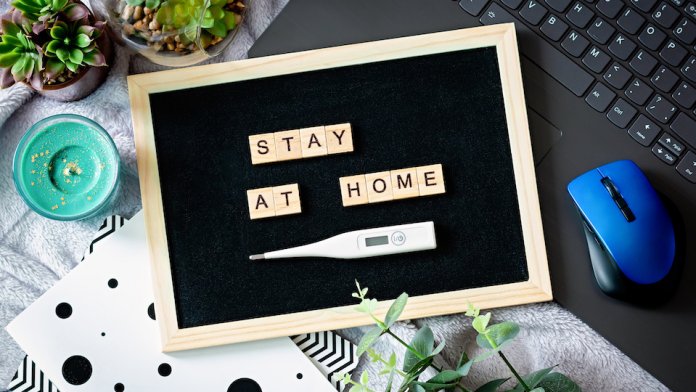It is a time of global crisis. From the hundreds of news articles flooding the media to overwhelming panic that is gripping millions as life is redefined in the presence of COVID-19, now is the time to come together and support each other in this time of need. While still practicing social distancing, of course. Technology is a wonderful tool and can be utilized to great effect to maintain relationships and bring the nation (and the world) together in a way that has never been seen before.
Stay at home
Even if you are not in a high-risk group such as an elderly person or someone with a compromised immune system, the best thing you can do for your neighbors and those who you come in contact with is to stay home and practice what has become known as “social distancing.” There is a reason that the federal government has pleaded with the nation to avoid large gatherings, with many states enforcing policies that penalize those who leave their homes for reasons other than necessity. This new virus is spread through contact with contaminated surfaces and people, which makes staying at home your best course of action.
Remember, even if you aren’t showing symptoms, you could still be a carrier, so it is essential to take every precaution to avoid transmission.
Wash your hands
Along with staying home whenever possible, when you do go out, it is vital to wash your hands thoroughly and avoid touching your face, eyes, or mouth. Keeping yourself healthy will help allow you to avoid becoming a source of contamination and will keep you and your family healthy and prevent you from infecting others. Keep in mind; face masks are not an effective means of reducing your exposure to the disease. They are only useful if you have contracted the novel coronavirus, and even then, they are not as beneficial as consistent handwashing and proper hygiene. Plus, panic buying of face masks has left a shortage in the healthcare industry, which could contribute to spread in hospitals and clinics.
Start a community group chat
Starting a group Facebook or text chain with your neighbors and friends is a great way to stay connected while you’re staying home. This is an excellent opportunity to meet and befriend neighbors that you wouldn’t otherwise have contact with. Situations like this can really pull people together and bring out the best in humanity. Consider offering to help older people or other people who are self-quarantining due to health concerns with grocery runs or other essential errands. To avoid contact, simply leave the supplies at their door and call or text after you leave. Make sure to wipe off any surfaces you had contact with, such as a doorknob or bell.
Stop panic buying
Panic buying only leads to shortages for those who are truly in need. While it’s a good idea to have a few week’s worth of food on hand, there’s no reason to snatch up every box of pasta on the shelves or purchase all of the canned goods. Buy what you need and leave the rest for others who also would like to avoid going to the grocery store for a few weeks. If shoppers were to continue buying groceries like they normally do, there wouldn’t be an issue with running out of food and other vital supplies such as hand sanitizer and toilet paper.
Donate to charitable organizations
If you are staying at home and don’t necessarily want to expose yourself by getting in on the grassroots of charity work, a great way you can help is by donating financially to organizations that offer aid to those affected by this crisis.
A few reputable organizations that are offering coronavirus aid include:
Meals on wheels is a longstanding charity that delivers meals to seniors who are in need or unable to leave their homes. In the age of the coronavirus, this service becomes all the more essential as this sensitive portion of the population is more likely to suffer serious complications related to the disease. Your financial donation will help provide meals and support for the elderly in their time of need.
The Center for Disaster Philanthropy
This charity has started a COVID-19 Response fund, which is money allocated specifically for contribution to nonprofits in areas that have been hit the hardest by the coronavirus. These nonprofits are all providing various services, including supporting healthcare workers and prevention strategies.
Though children aren’t considered a high-risk group for the coronavirus, Save the Children is a global children’s aid charity that has been focusing efforts on the effects of the coronavirus for children and their families, helping to prevent the spread of the virus and support families in need. They are also working to provide training and equipment for healthcare workers and aid in quarantine relief.
If you would like to ensure that your money stays in your local area, consider donating financially to a local food bank or community pantry. While physical goods aren’t needed as much, due to potential contamination, many of these organizations are working to deliver food to quarantined families in a safe and effective way using your financial contribution.
How have you been able to help others in the wake of COVID-19? Tell us your story in the comments below.
-The UpWellness Team


